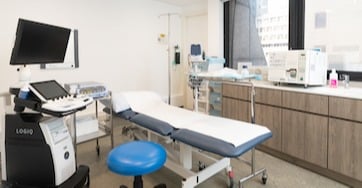Transmission of Dengue Fever
Dengue fever is primarily transmitted through the bites of female Aedes mosquitoes infected with the dengue virus, specifically the Aedes aegypti or Aedes albopictus species. These mosquitoes typically bite during the day, with peak periods occurring two hours after sunrise and several hours before sunset. Once a mosquito bites an infected person, it becomes a carrier, capable of transmitting the virus to others upon subsequent bites. This disease is more common in tropical and subtropical regions around the world, especially during the rainy season, when mosquito breeding conditions are ideal, potentially leading to a sharp increase in cases.
Causes of Dengue Fever
Dengue fever is caused by one of four different serotypes of the dengue virus (DENV-1, DENV-2, DENV-3, and DENV-4), all of which belong to the Flaviviridae family. After a person is bitten by an infected Aedes mosquito, the virus enters the bloodstream and begins to multiply.
The Aedes Albopictus in Hong Kong
While the Aedes aegypti has not yet been found in Hong Kong, the Aedes albopictus is a common mosquito species in the territory. This small mosquito, identifiable by its white markings, is predominantly active at dawn and dusk. Its breeding sites are typically still waters, such as in flower pots, old tyres, and containers that collect rainwater.
Symptoms of Dengue Fever
The clinical symptoms of dengue fever can range from mild, flu-like symptoms to severe hemorrhagic fever, which can be life-threatening. Typical symptoms of dengue include:
- High fever, with sudden onset with temperatures reaching up to 40°C (104°F)
- Severe headache
- Pain behind the eyes
- Muscle, joint, and bone pain
- Rash
- Nausea and vomiting
- Loss of appetite
In some cases, dengue fever can progress to more severe forms known as dengue hemorrhagic fever or dengue shock syndrome, which can lead to a precipitous drop in platelet count, increased vascular permeability, bleeding, dangerously low blood pressure, hemorrhagic shock and death.
Diagnosis of Dengue Fever
Diagnosis of dengue fever primarily relies on the following methods:
Clinical symptom review
- Doctors will assess the patient's symptoms and travel history, especially to areas endemic for dengue fever
Laboratory tests
- Blood tests to detect viral RNA, specific antibodies, or viral proteins.
- NS1 protein test, a viral marker detectable in the blood in the early stages of infection.
- Serology tests to measure levels of antibodies in the blood.
Treatment of Dengue Fever
Currently, there are no specific antiviral drugs or treatments for dengue fever. Treatment is symptomatic and supportive, aimed at alleviating symptoms and supporting basic physiological functions. Measures include:
- Rest: Adequate rest is crucial for recovery.
- Hydration: Encouraging the patient to drink plenty of fluids to prevent dehydration.
- Fever and pain relief medications: Use of fever-reducing drugs recommended by doctors, such as acetaminophen (aspirin should be avoided as it may increase the risk of bleeding).
- Monitoring and supportive care: In cases of dengue hemorrhagic fever or dengue shock syndrome, hospitalisation may be necessary, including fluid and blood administration and cardiovascular support.
Prevention of Dengue Fever
Preventive measures against dengue fever focus on reducing mosquito bites and controlling mosquito populations. Effective prevention strategies include:
Mosquito avoidance measures:
- Use of mosquito nets and screens.
- Wearing light-colored long-sleeved shirts and trousers, especially during peak mosquito activity times.
- Applying insect repellent containing DEET, Picaridin, or IR3535.
- Avoiding perfumed cosmetics or skin care products.
- Eliminating standing water.
- Regularly cleaning roof gutters, flower pots, and any containers that could collect water.
- Ensuring lids on buckets and water storage containers are tightly sealed to prevent mosquito breeding.
Community action:
- Participating in or organizing community clean-up campaigns to remove water accumulations in public areas.
- Educating community members about dengue fever and mosquito breeding.
Vaccination:
- Dengue vaccines have been approved in some countries for certain age groups and are generally recommended for those who have been previously infected with the dengue virus. There are no currently registered dengue vaccines in Hong Kong.
OT&P Healthcare Advice
Dengue fever is a preventable and controllable disease, with effective prevention and symptomatic treatment being key. Understanding the transmission modes, symptoms, and preventive measures can significantly reduce the spread and impact of the disease. Taking appropriate mosquito prevention measures during travel to endemic areas and outdoor activities can minimize the risk of contracting dengue fever. For further information or concerns, please consider consulting with healthcare professionals, particularly before traveling to regions where dengue is prevalent.
References
-
Travel Health Service. (n.d.). Dengue Fever. Retrieved June 6, 2024, from https://www.travelhealth.gov.hk/english/travel_related_diseases/dengue.html
-
Centre for Health Protection. (2023, May 12). Dengue Fever. Retrieved June 6, 2024, from https://www.chp.gov.hk/en/healthtopics/content/24/19.html

 Central General Practice
Central General Practice
 Repulse Bay
Repulse Bay
 Clearwater Bay
Clearwater Bay
 BodyWorX Clinic
BodyWorX Clinic
 Central Specialist Clinic
Central Specialist Clinic
 MindWorX Clinic
MindWorX Clinic
 Partner Clinics
Partner Clinics
 Family Clinic
Family Clinic
 OT&P Annerley Midwives Clinic
OT&P Annerley Midwives Clinic


